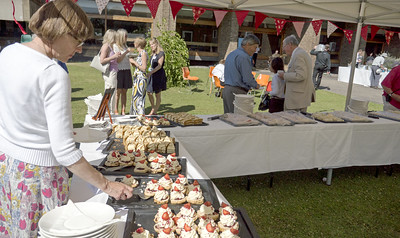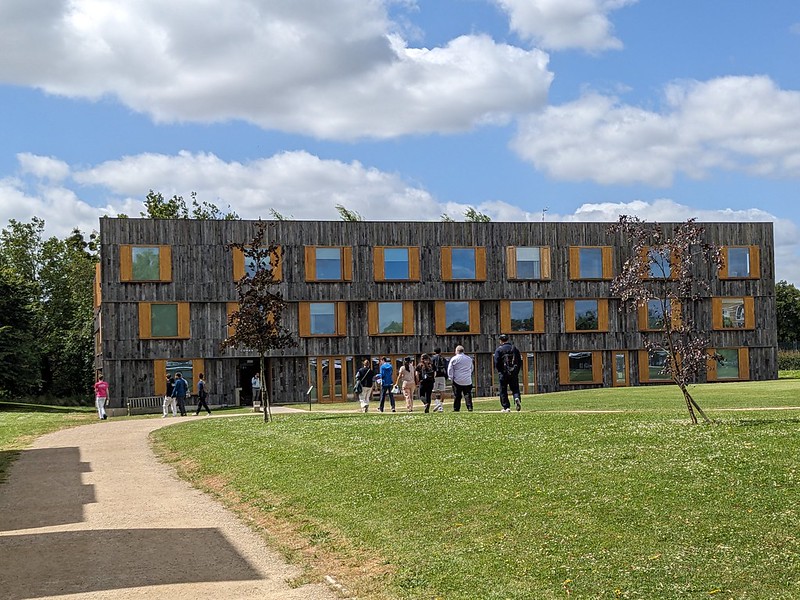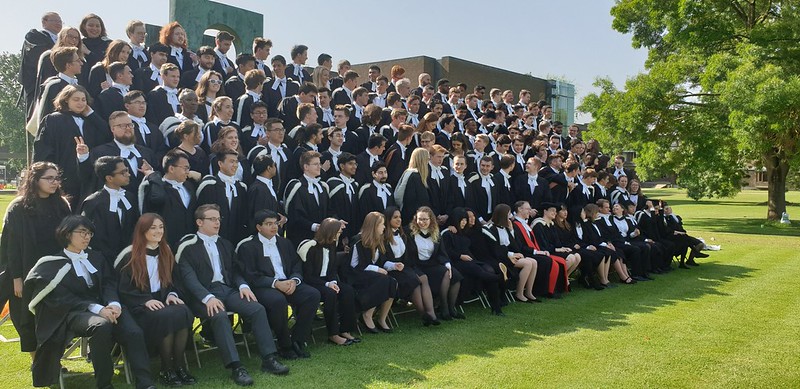Your Legacy to Churchill College
Making a lasting impact
A legacy is one of the most meaningful ways you can support Churchill College, creating a lasting impact for future generations. Gifts left in Wills have sustained and transformed the College over the years – funding fellowships, scholarships, bursaries, and buildings – all enabling Churchill to flourish and move confidently forward.
This page explains the different ways you can leave a legacy to Churchill College, including the potential tax advantages. You can also discover the real difference legacies make through personal stories from those who have chosen to give and from those who have benefited from their generosity.

Thanking you
The College recognises that your bequest intentions are a personal matter, which you may wish to keep confidential for now. However, if you would be willing to let us know that you intend to leave a legacy in your Will, the College would be very grateful for this information.
All individuals who pledge or indicate that they will give a gift in a Will to the College has the option to be a member of the Winston S. Churchill 1958 College Society.
Membership is entirely voluntary, and each year an event is held for new and existing members in appreciation of their legacy commitment to the College. At this year’s event, guests attended a drinks reception followed by lunch in the Fellows’ Dining Hall and a music recital by a current student.
All those who have been formally admitted to the WSC 1958 Society at the annual gathering of members (and have given permission for their names to be listed) are included in the Member list of the Winston S. Churchill 1958 College Society printed in the annual Churchill Review.
Churchill College is a registered charity, so for UK taxpayers, any gift in a Will or codicil to a Will comes out of any inheritance tax liability.
There is also a provision which further reduces the rate of inheritance tax on the whole estate from 40% to 36% if 10% of the estate is given to charity. Legacies need not be large – many such gifts are 1% of the total value of the donor’s Will – and you can write a gift into your Will at any time.
For those based in the US, Cambridge in America offers a range of further information for planning your estate and have established the 1209 Society to honor and acknowledges the many generous benefactors in the US.
We recommend anyone making a Will should speak with their solicitor. The College can suggest solicitors if you would find this helpful – please get in touch with us for details.
Adding the College to your Will
Provided the bequest is straightforward, we suggest using the following wording to leave a legacy to Churchill College in your Will:
“I give to Churchill College in the University of Cambridge, whose address is Storey’s Way, Cambridge CB3 0DS, UK (registered charity number 1137476) [the residue of my estate] / [x% of the residue of my estate] / [the sum of £x] free of tax for The Trustees to apply in such a manner as they in their absolute discretion think fit for the benefit of the College and I declare that the receipt of the Bursar or other authorised Officer for the time being of the College shall be a good and sufficient discharge to my Executors.”
If you are planning on leaving a more complicated bequest, your solicitor can advise on the best wording for you.
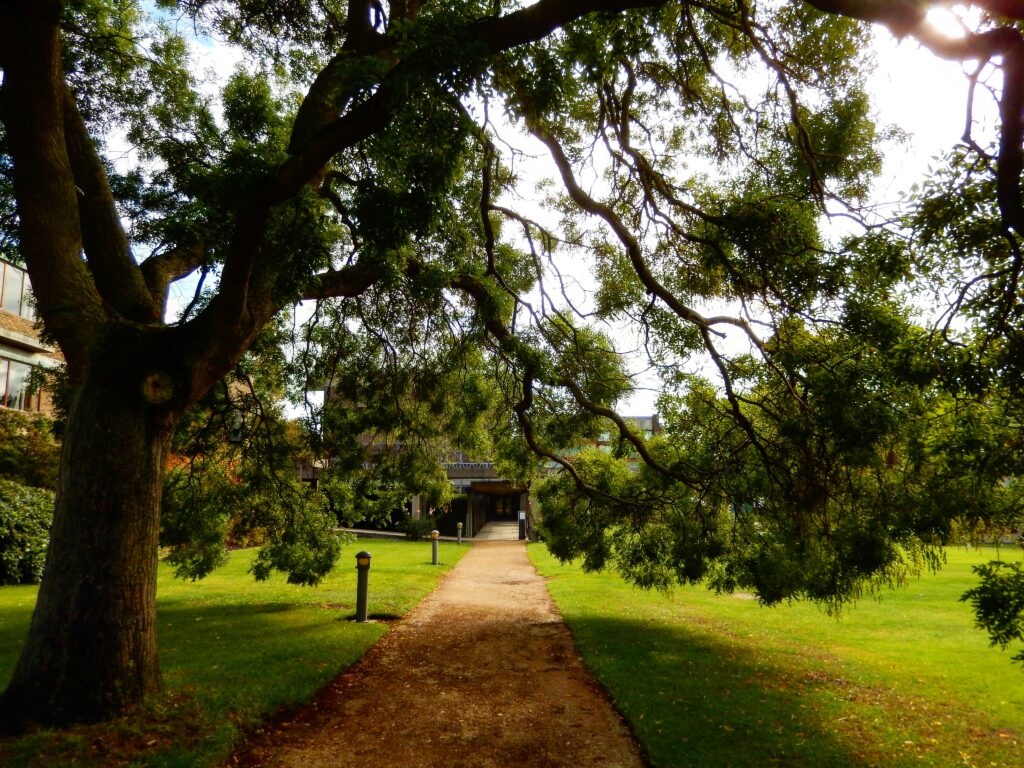
Let us know
The College recognises that your bequest intentions are a personal matter, which you may wish to keep confidential for now. However, if you would be willing to let us know that you intend to leave a legacy in your Will, the College would be very grateful for this information.
If you have included Churchill College in your Will or would like any further information, please let us know by completing the Legacy Pledge form, or contact the Development Office directly. The form itself is not binding, but an indication of your desire to help the College in its long term planning. It will enable the College to recognise your generosity and invite you to be a member of the Winston S. Churchill 1958 College Society.
Contact Information:
Samuel Venn, Principal Gifts Officer (Legacies) T: 07856 935298
Fran Malaree, Development Director T: 01223 336197
Hilary Stimpson, Development Officer T: 01223 336240
Legacy stories
The Philippa Comber and Barrie Hesketh Performing Arts Fund
It is thanks to Churchill College – and in large part to the late Dr Colin Campbell – that Philippa Comber and Barrie Hesketh first met. This was in January 1985. Their initial encounter, a conversation over cups of tea in Philippa’s set of rooms, proved serendipitous: they were kindred spirits. And thirty-six years later, still talking….
Was this down to coincidence? Only later did it become apparent that there had been other forces at work, notably the good offices of Colin Campbell, Senior Tutor of the College from 1975 to 1985.
In 1978, Colin and his wife were on holiday on the Isle of Mull. One evening, they went to the theatre. The Mull Little Theatre was the brainchild of two actors, London-trained, Barrie and Marianne Hesketh; now into its twelfth year and thriving. It operated on a shoe-string – a case of single-minded dedication, hard graft and sheer ingenuity on the part of the Heskeths. As Barrie would put it, “the imaginative use of everything and nothing”.
Colin was so impressed by what he’d witnessed the previous evening, he returned next morning to ask the Heskeths if they’d accept an invitation to come to Cambridge and spend a term in his College as Fellow Commoners.
That same summer, the couple were faced with a challenge of another sort: Marianne was diagnosed with cancer and required major surgery, followed by radiotherapy. With Marianne still in recovery, the Heskeths arrived in Churchill for the Michaelmas Term 1979. They wasted no time involving themselves in College life, Barrie directing a student production of Karel Capek’s The Insect Play. Other projects included research into actor-audience interaction using video recordings; and arranging a cabaret-style happening at the Christmas Feast in the Dining Hall – by all accounts, joyfully subversive!
In April 1984, after a protracted struggle with the cancer, Marianne died. On receiving this news, Colin Campbell responded with typical generosity, suggesting that Barrie take time out from Mull and come back to Churchill – have a chance to recuperate and take stock regarding his personal and professional future. He accepted Colin’s offer without hesitation.
Philippa, a psychologist, had been in post as Churchill’s first full-time College Counsellor since January 1983. Since the post was without precedent, Philippa drafted her own job description. Over and above her clinical role, she decided she might usefully extend the pastoral element by offering a personal welcome to guests and visiting Fellows. It was as self-appointed “guardian of social welfare” within College that she invited Barrie to tea.
* * * * *
Some years before Barrie died (19 October 2021), he and Philippa had begun discussing the idea of leaving a legacy to Churchill College. They would request that a Trust Fund be set up in their joint names – a fund with a specific aim: to promote and encourage interest in the performing arts in the College, offering financial support or sponsorship to any student/students wishing to engage in related activities, including music and theatre.
Barrie and Philippa wished the Fund to be a reflection of their particular preoccupations and personal values: for example, their fundamental belief that access to the performing arts within educational institutions (other than those providing professional training such as music conservatoires and drama schools) should not be regarded as a luxury or “optional extra”. Rather, that it formed an integral aspect of personal development; and a means to better health, physical and mental. Both Barrie and Philippa had first-hand experience of projects devoted to music, theatre and the visual arts; and knew that participation was an excellent way of helping young people realise their potential; boost confidence, discover and nurture talent, acquire new skills.
Barrie and Philippa intended the Fund to benefit any student at Churchill, no matter what their academic discipline or field of study. Interest in the performing arts could be shared across the board, engender dialogue, consolidate a sense of belonging within the community.
In that sense, the couple were mindful of the reputation and status of Churchill College: a centre of excellence in academic terms; but which, since its foundation, had always made space for the arts. With a focus on the performing arts, they anticipated that the Fund would build on this tradition: have a positive impact both on those receiving funding; and on the cultural life of the College more generally. (Anybody attending a musical recital or being a member of the audience at a theatrical event would stand to gain.)
“Above all, Barrie and I wished the Fund to be understood as an expression of our gratitude to the College for welcoming us into its community – indeed, for having enabled our partnership.’
—Philippa Comber

Ruth and Robert Edwards bequest
The College received a generous £200,000 bequest from Ruth Edwards, the wife of Sir Robert (Bob) Edwards, past Fellow, Nobel Laureate and pioneer in IVF medicine, to help fund a studentship in the bio-medical field, in memory of her husband who died in 2013.
Ruth met Bob whilst at Edinburgh University around 1953 where they were both doing PhDs in Genetics. Ruth was very bright and greatly enjoyed her time at University and this was evident in the stories she used to tell to her daughters. Their family recall that one of the scientists Bob most admired was Ernest Rutherford and for the first three months of their relationship he didn’t know that Ruth was in fact, Ernest Rutherford’s grand-daughter! They became engaged during the course of their collaboration in Edinburgh and married in 1954 before departing for a year in California where they worked closely together to publish several joint papers before the birth of their first daughter.
They went on to have five daughters in under five years which was a full-time job for Ruth in the early years. By this time Bob was working at Cambridge University and becoming very involved in the field of human reproduction. Once the girls were at secondary school Ruth re-joined Bob at the University and she went on to produce further research papers in her own right. In 1978 they moved to a farm in Dry Drayton which led to a whole new range of projects for Ruth including the establishment of an award winning herd of angora goats with the help of IVF! From these she produced luxury wool for sale and created jumpers, sweaters and scarves that she sold at the farm shop. Living on a farm also facilitated Bob’s lifelong passion for trees. His daughters recall that he planted thousands of trees on the farm in his spare time, often returning from dinner at Churchill College on a summer evening to water and plant new trees until dusk descended!
Throughout his life, Bob was conscious of the importance of education for young people and was hugely motivated by the challenge of engaging bright minds to ‘think outside the box’ during his years of supervising graduate students at Cambridge in the late1960’s and 70’s. He was a demanding supervisor and expected much from his students but many of them have never forgotten what they owe to him. Ruth and her children were aware of Bob’s wish to give something back to future generations of students by leaving a legacy for the College and her bequest has brought this to fruition.
Michael Schoof has recently become the first beneficiary of the Professor Sir Robert Edwards studentship and is undertaking a research based MSc as part of Professor Julie Ahringer’s research group in the Gurdon Institute. Michael’s project will investigate the function of the Retinoblastoma/DREAM complex, in which dysregulation is linked to human cancers, including those of the reproductive system.
“He was always someone who pushed boundaries throughout his life in the field of human reproduction and IVF and we believe that the reason for his desire to leave some money to the College was to help future generations of bright students to study in this or a related field and give them the opportunity of coming to Churchill College. He was also conscious of the fact that many students struggle financially at university and always remembered experiencing this himself at Edinburgh University.’
—Caroline Roberts & Jenny Joy (two of Bob and Ruth’s daughters)
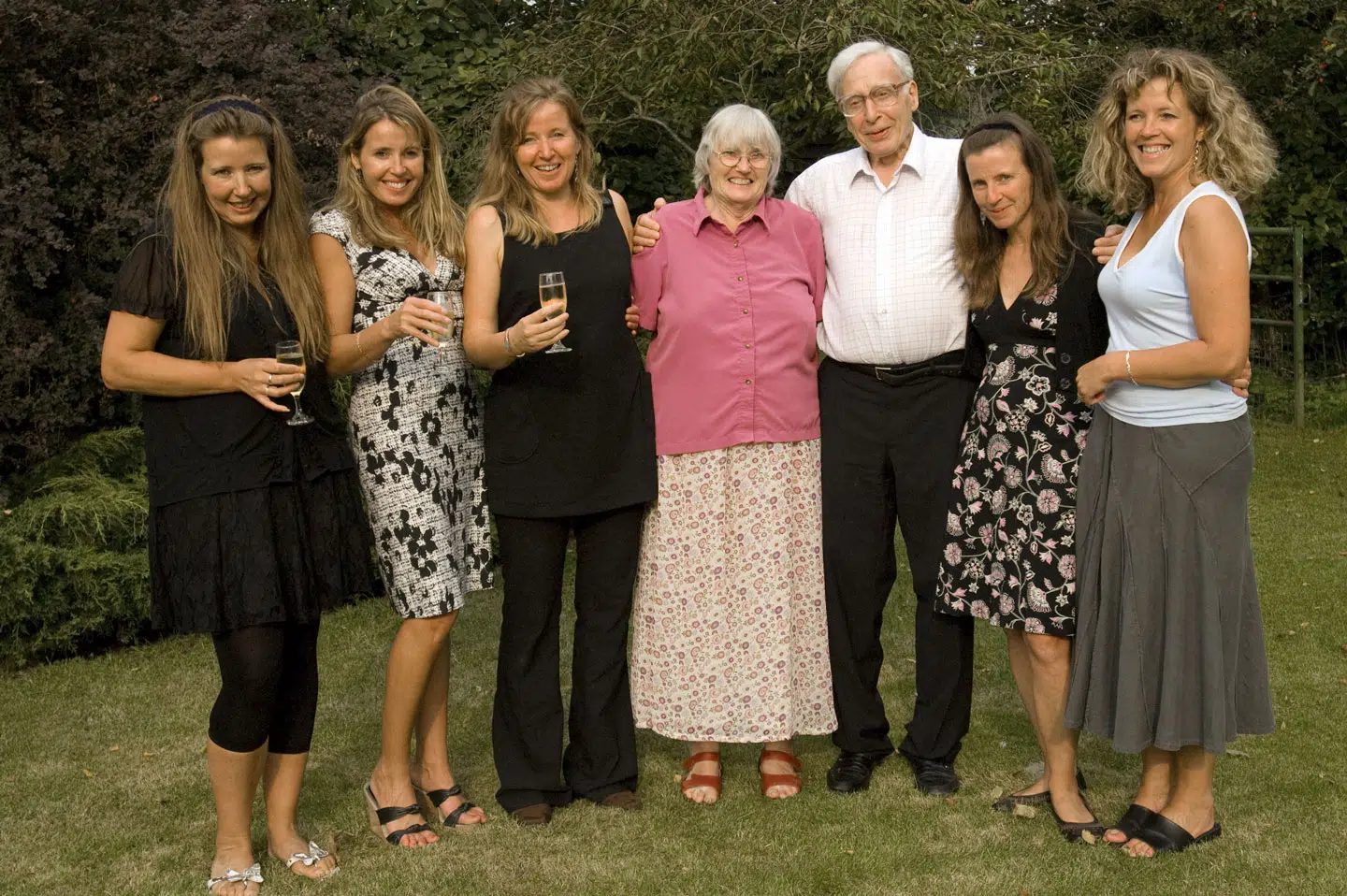
Marie Finston legacy
In 1971, Professor Morton Finston, Professor of Aeronautics at Massachusetts Institute of Technology (MIT) arrived at Churchill College with his wife Marie and their two young children Lisa and Nina, then aged 11 and 9.
Morton had been invited to join the College for a term as a Visiting Fellow by the then Master Sir William Hawthorne, and was able to extend his stay in England via a personal sabbatical to enable his two children to complete a full school year.
Memories of the happy times they spent together as a family in the Sheppard Flats during that year prompted Marie to make a legacy gift of £3,375 in support of the College’s Visiting Fellowship fund and the bequest has been warmly received by the College.
Morton met his wife Marie at MIT when she was working at the Instrumentation Lab and she went on to work for Dr Charles Stark Draper, founder of Draper Laboratories following her graduation from Wellesley College. They loved good music – Marie was a classically trained pianist and Morton played the clarinet — and they both enjoyed travelling so they were excited to take up the opportunity of joining the Churchill College community for a year.
The family moved into the Sheppard Flats and quickly settled in to College life. Nina and Lisa vividly recall spending many happy hours on the College fields and in the Chapel and open tennis courts that were there in the 70’s, as well as frequenting the large strawberry patch nearby! They were also able to take advantage of living at the heart of a vibrant international community and made friends with children from Ghana, Nigeria, Spain, Northern Ireland, the Netherlands, and Poland, many of whom they are still in touch with today.
Morton, for his part, welcomed the opportunity to work and socialise with world renowned scientists and scholars as part of the Churchill community and greatly enjoyed his time at the College, as did Marie who mastered driving ‘on the wrong side’ and took the opportunity to explore Cambridge and the surrounding countryside whenever possible. The family went on frequent excursions and Lisa and Nina recall visits to; the American Cemetery, Ely Cathedral, King’s College, the Backs, Newmarket and a favourite tea shop in Ashley as well as holiday trips to Great Yarmouth and the Cotswolds.
Just over 45 years on and Nina is now a lawyer working as Assistant Director for the Securities and Exchange Commission in Washington DC and Lisa, who pursued a career in healthcare, is presently a Corporate Director at Partners HealthCare based in Boston Mass. They both recall their time at Churchill very fondly and Nina is a confirmed Anglophile, having made several walking trips to England in subsequent years, often taking her mother with her to visit Cambridge and the College.
Nina and her mother, outside the Sheppard flats
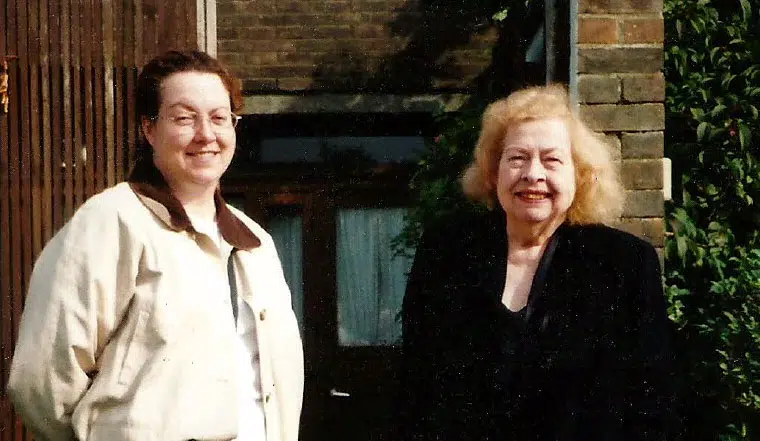
You may also be interested in:
